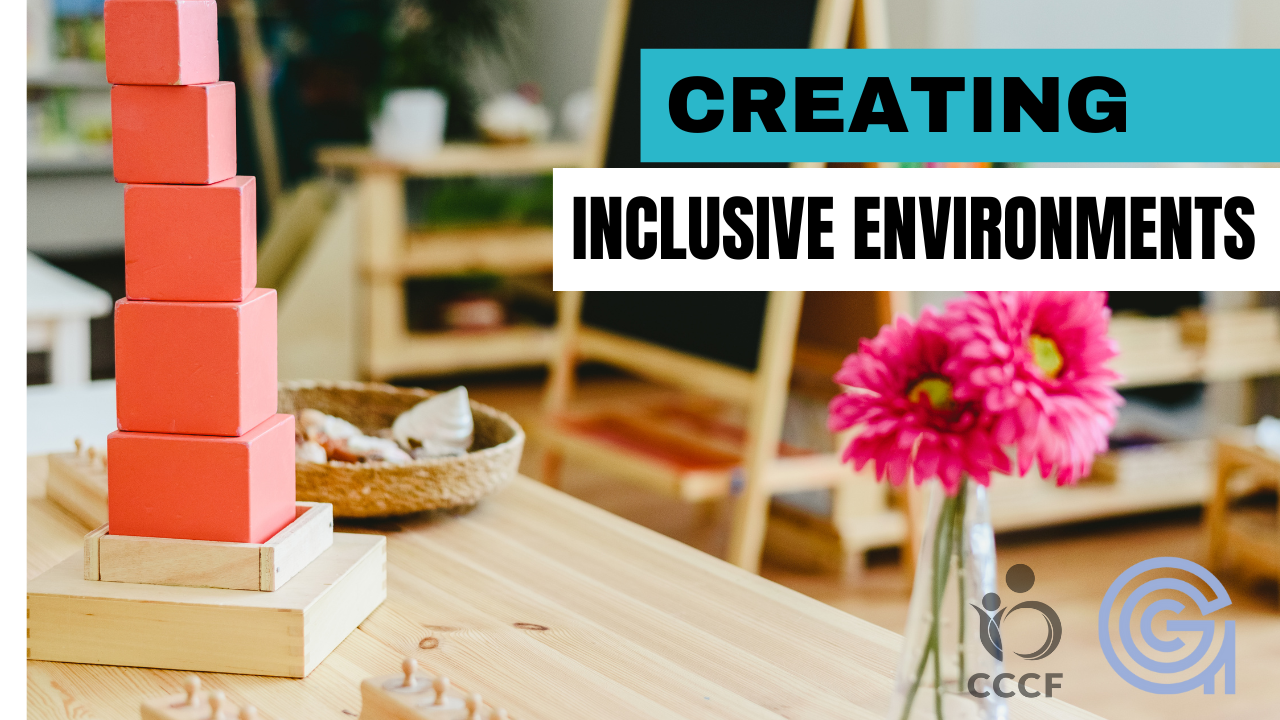Creative learning spaces encourage and inspire educators, children and their families
Preparing the Learning Environment
Responsive caregiving with parents and caregivers along with the setting up the physical environment are essential elements of creating the optimal learning opportunities for children. Safe, carefully thought out, creative learning spaces encourage and inspire educators, children and their families. Trusting, healthy and strong relationships with families is an essential piece of a successful learning environment.

Articles

Creating Inclusive Environments
CCCF and GRIT partner to share answers to important questions. What does a responsive, inclusive environment look like? Explore practical

Getting Clear About Inclusion
CCCF and Grit present “Getting Clear about Inclusion”, facilitated by content expert facilitators Gina Blank (Professional Learning Lead, GRIT program)

Let’s Get Reading: What You Need to Know About Dialogic Reading
This is the third in the series of webinars with SAC and expert presenter Caroline Erdos, PhD, S-LP(C). Watch this

Improving Environmental Health and Sustainability in Home Child Care
CCCF is proud to partner with CPCHE to provide this webinar, developed especially for Home Child Care Providers! This webinar

Simple as ABC: Everyday Actions for Healthy and Sustainable Child Care Settings
September can feel like the start of a new year, a time of change. The temperature starts to cool, the

RETHINKING NAPTIME: CCCF WEBINAR
Join expert sleep researchers in rethinking naptime. We will cover sleep basics, the benefits of naps, the signs children are ready to stop napping, and the benefits of ending naps.
Enjoy Some Of Our Past Content On This Topic
- Working with Military Families
Together with the Vanier Institute of the Family, CCCF developed a resource for practitioners who are serving military families. Download the copy here or en français - Developmentally Appropriate Practices in School-Age Child Care
To encourage developmentally appropriate practices, the children’s environment should be well organized, clearly defined and easily accessible. Download the copy here - Understanding Learning Styles
The more senses we use to learn about anything, the more information we get. Download the copy here - Respecting Children’s Rights in Practice
Learning to share and to take turns, listening and being listened to are ways children learn about respecting each other’s rights. Download the copy here - Supporting Children to Learn Through Play
The child care setting promotes play when divided into a number learning centres clearly defined areas that have equipment, materials and supplies that fit together and promote children’s developmental growth. Download the copy here - Building Partnerships with Families
Here are some ways to strengthen your partnership with parents in caring for their children. Download the copy here - Primary Care
The primary caregiving approach supports a goodness of fit model, enriches communication, and solidifies relationships with families. Download the copy here







